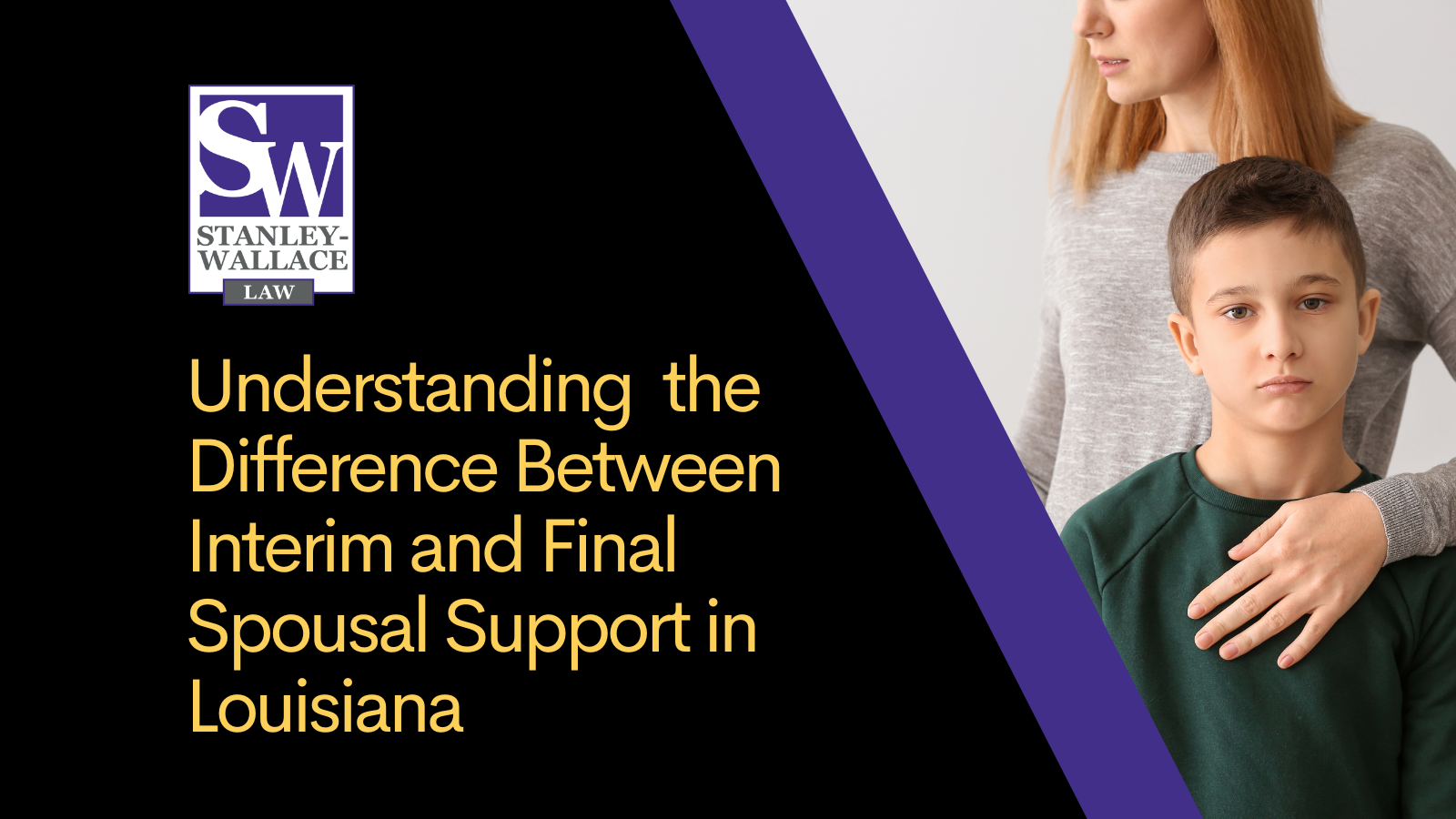When navigating the complexities of divorce in Louisiana, understanding spousal support—often referred to as alimony—is crucial for both parties. In Louisiana, there are two primary types of spousal support: interim and final. Each serves a different purpose and is applicable under different circumstances. Here’s a breakdown of the key differences between these two forms of support.
1. What is Interim Spousal Support?
Definition
Interim spousal support, also known as temporary spousal support, is designed to provide financial assistance to a spouse during the divorce process. This support is intended to maintain the standard of living that the receiving spouse enjoyed during the marriage.
Duration
Interim support is temporary and lasts only until six months after the final divorce decree is issued.
Eligibility
To qualify for interim spousal support in Louisiana, the requesting spouse must demonstrate a need for financial assistance and that the other spouse has the ability to pay.
How It’s Calculated
The courts typically review the income and expenses of the parties to determine if the requesting spouse has the requisite need and the other spouse has the ability to pay. The court may also review financial documents such as paycheck stubs, tax records, bank accounts, bills, invoices, and any other documents that may be relevant and admissible. If the requesting spouse’s expenses exceed his or her income then the requesting spouse has proven “need”. If the other spouse’s income exceeds his or her expenses, then the requesting spouse has proven the other spouse’s ability to pay. The court can also consider any interim or final child support obligation and the standard of living of the parties during the marriage.
2. What is Final Spousal Support?
Definition
Final spousal support, on the other hand, is intended to provide long-term financial assistance after the divorce is finalized. It is meant to help the lower-earning or non-working spouse adjust to life after marriage, particularly if they require time to gain independence or retrain for employment.
Duration
Final spousal support can be awarded for a specific period or indefinitely, depending on the circumstances of the marriage and the needs of the recipient. Louisiana courts consider various factors to determine the duration of final support.
Eligibility
To be awarded final spousal support, the requesting spouse must demonstrate:
- The requesting spouse’s need (just as with interim spousal support);
- The other spouse’s ability to pay (just as with interim spousal support); and
- That the requesting spouse is free from fault for the breakup of the marriage.
How It’s Calculated
The court may consider the factors in interim spousal support and may also consider factors such as the earning capacity of the parties, the effect of custody of children upon a party’s earning capacity, the time necessary for a requesting spouse to acquire appropriate education, training, or employment, the health and age of the parties, the duration of the marriage, and the existence, effect, and duration of any act of domestic abuse committed by the other spouse upon the requesting spouse.
Conclusion
Understanding the differences between interim and final spousal support in Louisiana is essential for both parties involved in a divorce. Interim support provides temporary relief during a challenging transitional period, while final support offers long-term assistance based on various factors after the marriage has ended.
If you find yourself in a situation involving spousal support, consulting with an experienced family law attorney can help you navigate the complexities of your case. They can provide guidance on your rights, assist with calculations, and represent your interests throughout the process. Being informed is the first step in ensuring a fair outcome as you transition into the next chapter of your life.


